Kreisel Series / Série Kreisel
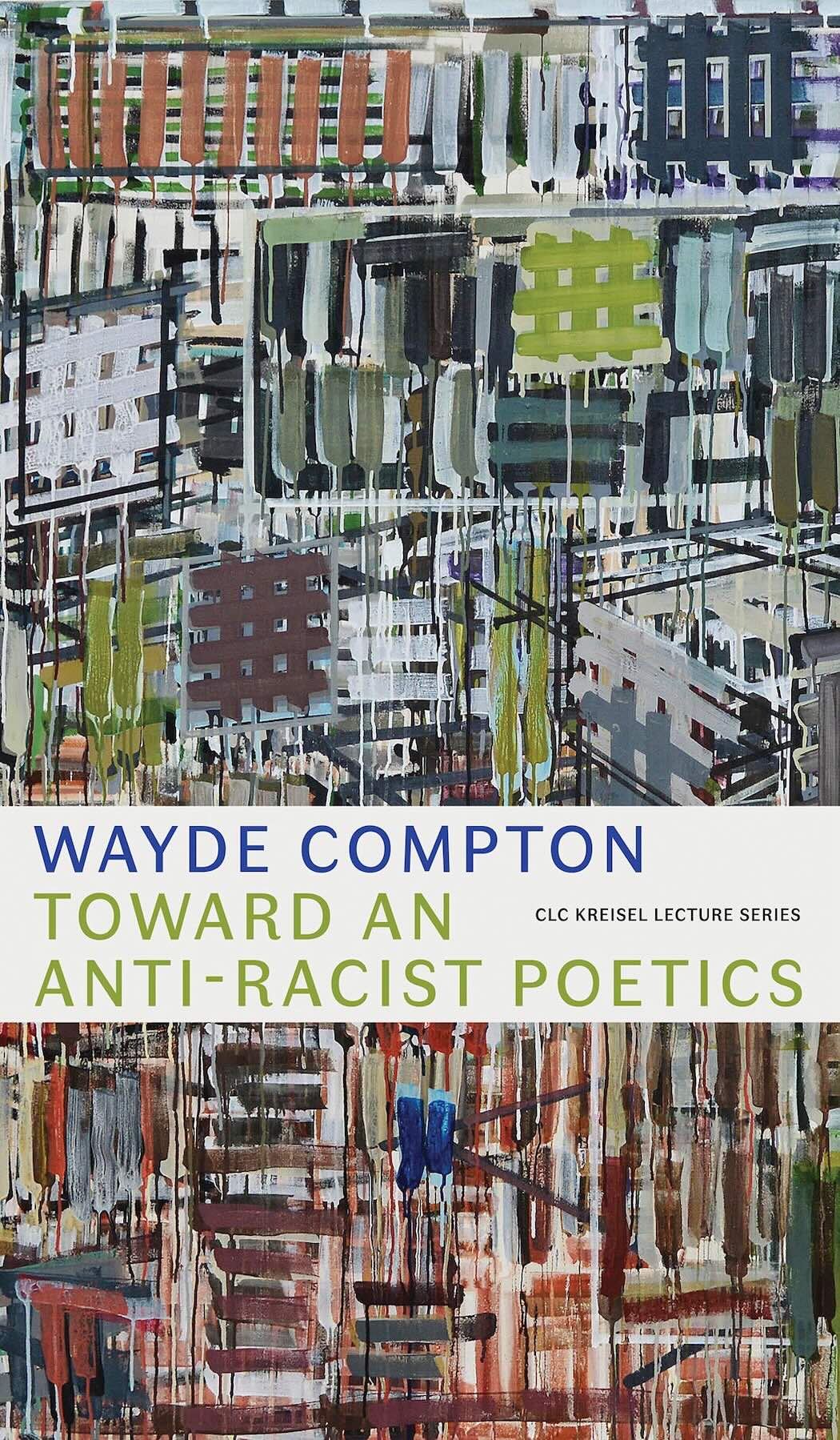
Toward an Anti-Racist Poetics
Author: Wayde Compton
Introduction: Michael A. Bucknor
Publishers: University of Alberta Press and the Centre for Literatures in Canada | Centre de littératures au Canada
Lecture Date: March 8, 2023 (the 17th Kreisel Lecture)
Publication Date: February 2024
About the Book:
Toward an Anti-Racist Poetics seeks to dislodge the often unspoken white universalism that underpins literary production and reception today. In this personal and thoughtful book, award-winning author Wayde Compton explores how we might collectively develop a poetic approach that makes space for diversity by doing away with universalism in both lyric and avant-garde verse. Poignant and contemporary examples reveal how white authors often forget that their whiteness is a racial position. In the propulsive push to experiment with form, they essentially fail to see themselves as “white artists.” Noting that he has never felt that his subjectivity was universal, Compton advocates for the importance of understanding your own history and positionality, and for letting go of the idea of a common aesthetic. Toward an Anti-Racist Poetics offers validation for poets of colour who do not work in dominant western forms, and is for all writers seeking to engage in anti-racist work. (from UAP)
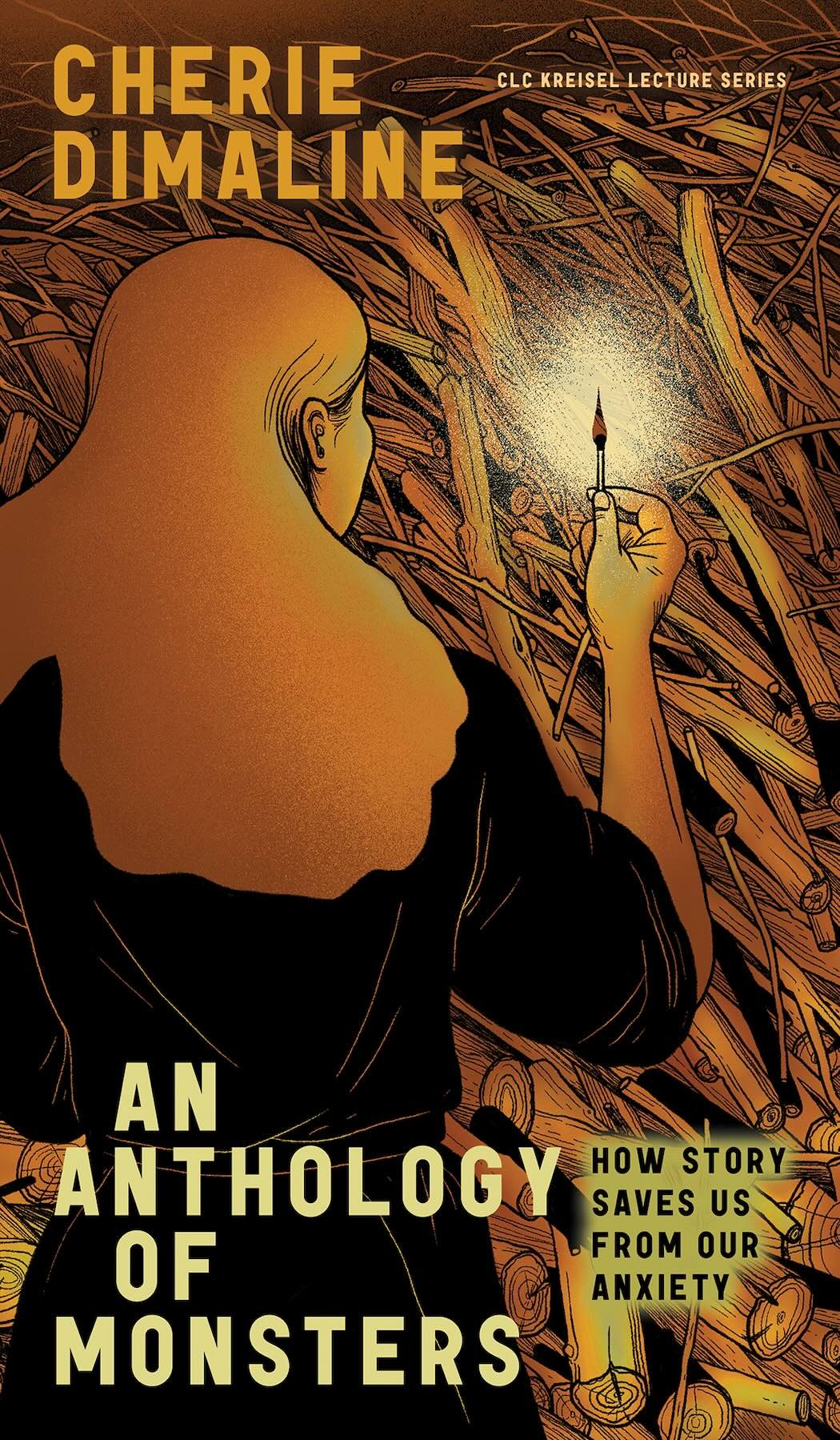
An Anthology of Monsters: How Story Saves Us from Our Anxiety
Author: Cherie Dimaline
Publishers: University of Alberta Press and the Canadian Literature Centre | Centre de littérature canadienne
Lecture Date: April 21, 2022 (the 16th Kreisel Lecture)
Publication Date: February 2023
About the Book:
An Anthology of Monsters by Cherie Dimaline, award-winning author of The Marrow Thieves, is the tale of an intricate dance with life-long anxiety. It is about how the stories we tell ourselves can help reshape the ways in which we think, cope, and ultimately survive. Using examples from her books, from her mère, and from her own late night worry sessions, Dimaline choreographs a deeply personal narrative about all the ways in which we tell stories. She reveals how to collect and curate our stories, how they elicit difficult and beautiful conversations, and how family and community is a place of refuge and strength. (from UAP)
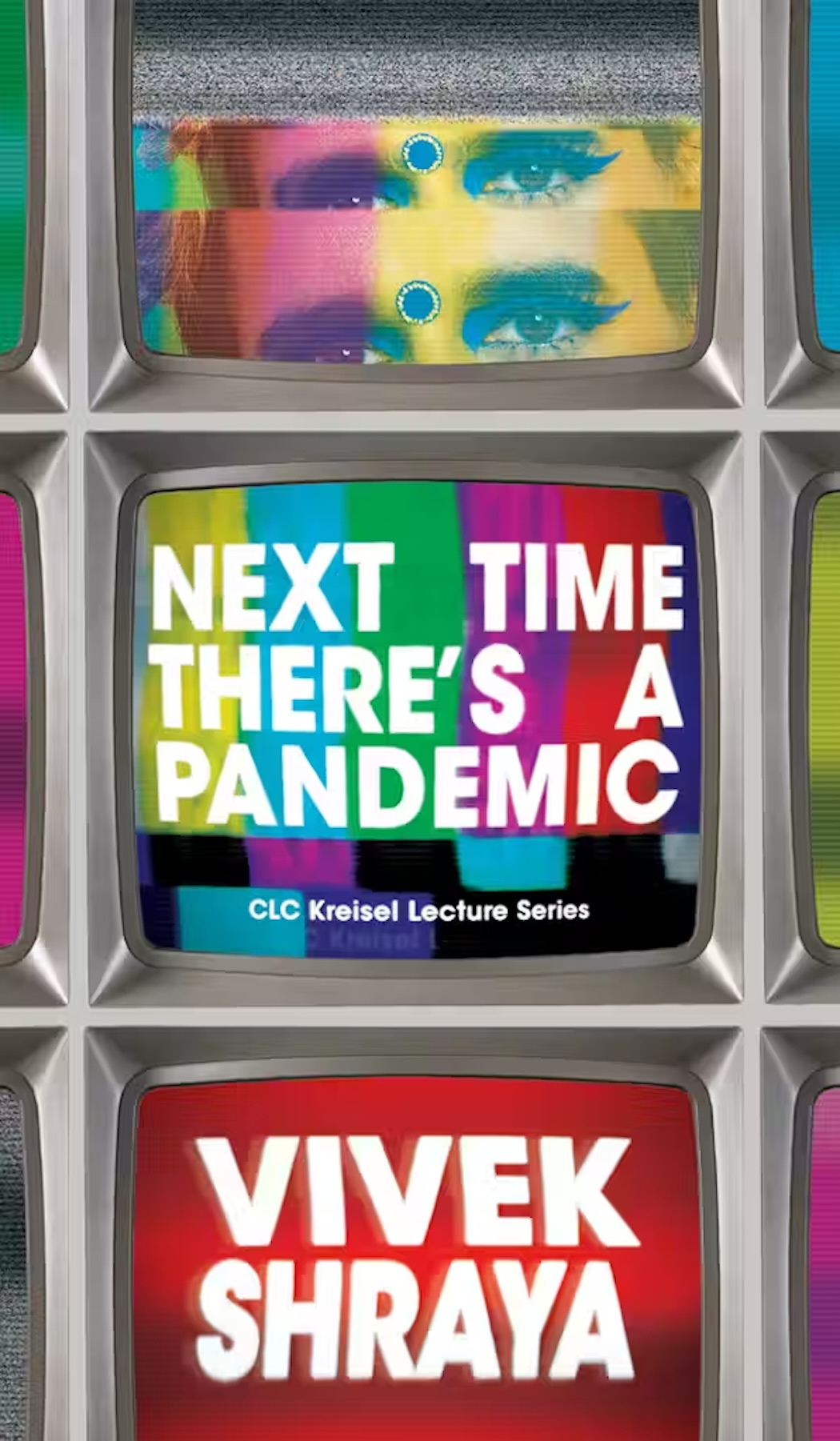
Next Time There's a Pandemic
Author: Vivek Shraya
Afterword: J.R. Carpenter
Publishers: University of Alberta Press and the Canadian Literature Centre | Centre de littérature canadienne
Lecture Date: March 29, 2021 (the 15th Kreisel Lecture)
Publication Date: March 2022
About the Book:
"During my first post-lockdown massage, I willingly engaged in the requisite chit chat about lockdown experiences with my therapist. He gushed behind his mask: ‘Oh man. It was so great. Every day I woke up, drank coffee, read, rode my bike . . .’ My therapist’s description did sound pretty great. But it was nothing like my own anxiety-ridden ordeal . . . Had I done the lockdown wrong?”
In Next Time There’s a Pandemic, artist Vivek Shraya reflects on how she might have approached 2020 and the COVID-19 pandemic differently, and how challenging and changing pervasive expressions, attitudes, and behaviours might transform our experiences of life in—and after—the pandemic. What might happen if, rather than urging one another to “stay safe,” we focused instead on being caring? What if, instead of striving to “make the best of it” by doing something, we sometimes chose to do nothing? With generosity, Shraya captures the dissonances of this moment, urging us to keep showing up for each other so we are better prepared for the next time . . . and for all times. (from UAP)
CBC Radio One's The Next Chapter aired Vivek Shraya in conversation with Shelagh Rogers about the publication of Next Time There's a Pandemic. Listen to and read excerpts from this episode from May 20, 2022, on the CBC Radio website.
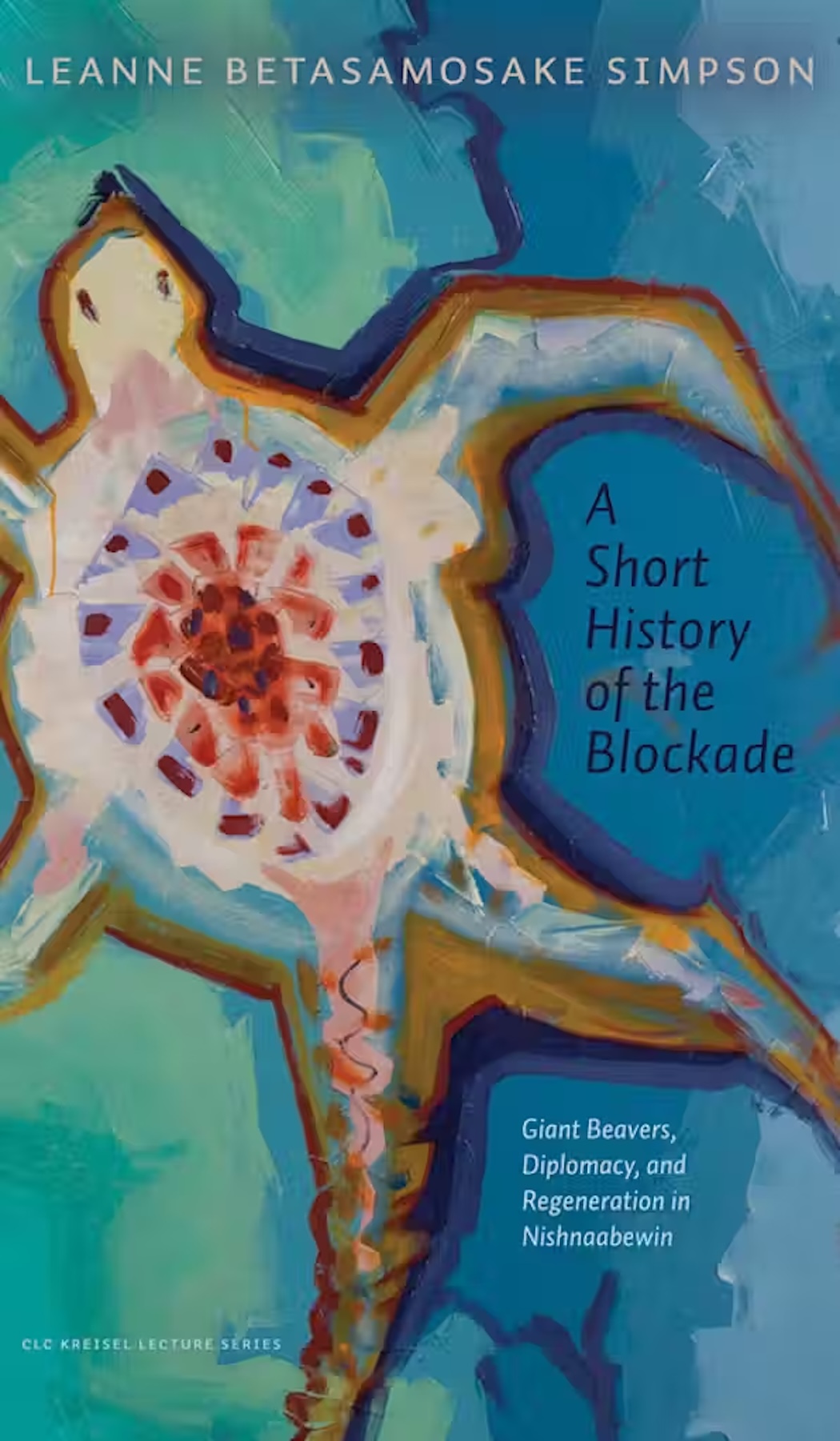
A Short History of the Blockade: Giant Beavers, Diplomacy, and Regeneration in Nishnaabewin
Author: Leanne Betasamosake Simpson
Introduction: Jordan Abel
Publishers: University of Alberta Press and the Canadian Literature Centre | Centre de littérature canadienne
Lecture Date: March 12, 2020 (the 14th Kreisel Lecture)
Publication Date: February 2021
About the Book:
In A Short History of the Blockade, award-winning writer Leanne Betasamosake Simpson uses Michi Saagiig Nishnaabeg stories, storytelling aesthetics, and practices to explore the generative nature of Indigenous blockades through our relative, the beaver—or in Nishnaabemowin, Amik. Moving through genres, shifting through time, amikwag stories become a lens for the life-giving possibilities of dams and the world-building possibilities of blockades, deepening our understanding of Indigenous resistance as both a negation and an affirmation. Widely recognized as one of the most compelling Indigenous voices of her generation, Simpson’s work breaks open the intersections between politics, story, and song, bringing audiences into a rich and layered world of sound, light, and sovereign creativity. A Short History of the Blockade reveals how the practice of telling stories is also a culture of listening, “a thinking through together,” and ultimately, like the dam or the blockade, an affirmation of life. (from UAP)
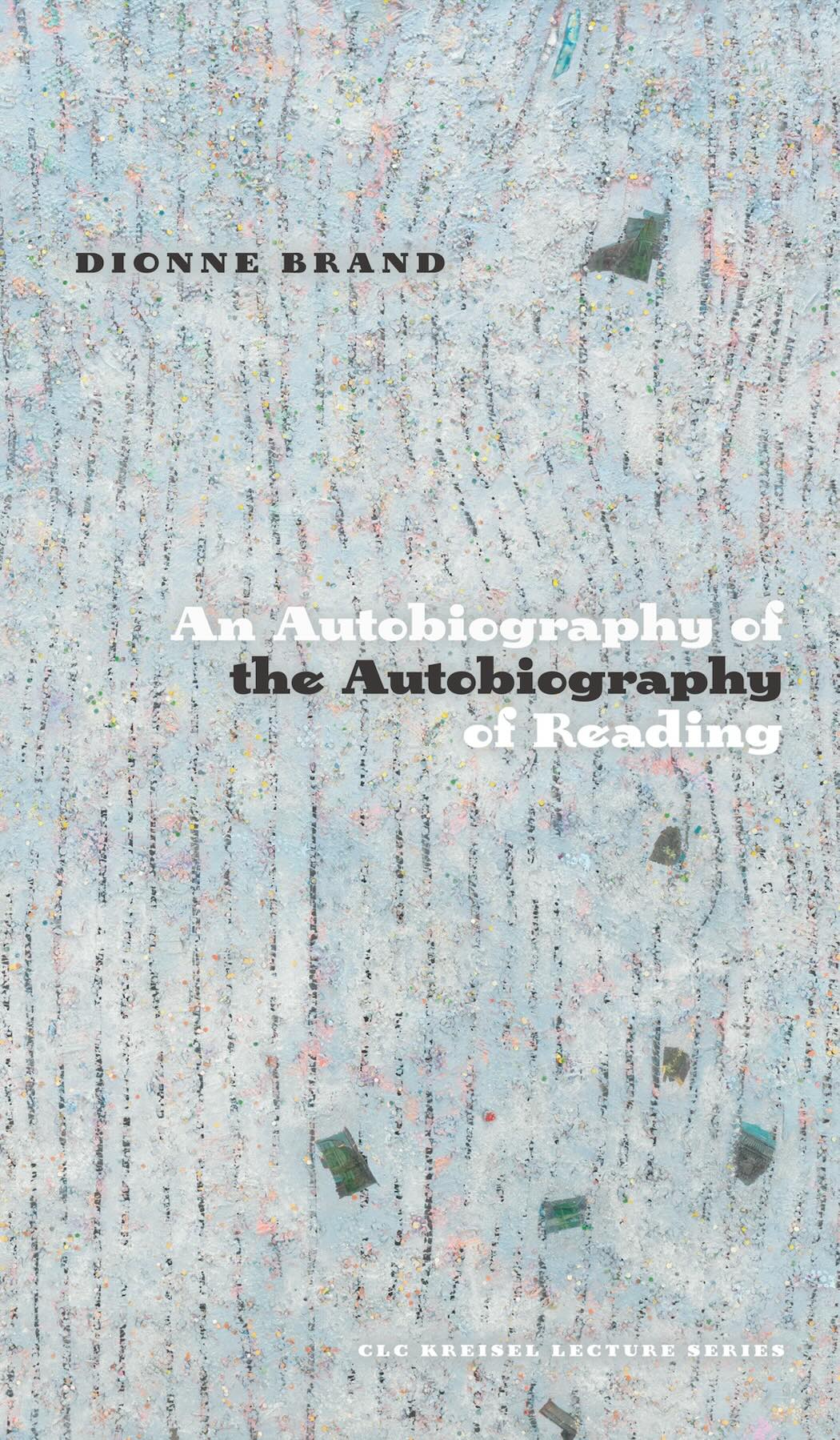
An Autobiography of the Autobiography of Reading
Author: Dionne Brand
Publishers: University of Alberta Press and the Canadian Literature Centre | Centre de littérature canadienne
Lecture Date: April 16, 2019 (the 13th Kreisel Lecture)
Publication Date: January 2020
About the Book:
The geopolitics of empire had already prepared me for this . . . coloniality constructs outsides and insides—worlds to be chosen, disturbed, interpreted, and navigated—in order to live something like a real self.
Internationally acclaimed poet and novelist Dionne Brand reflects on her early reading of colonial literature and how it makes Black being inanimate. She explores her encounters with colonial, imperialist, and racist tropes; the ways that practices of reading and writing are shaped by those narrative structures; and the challenges of writing a narrative of Black life that attends to its own expression and its own consciousness. (from UAP)
Winner of a 2021 Alberta Book Publishing Award! Learn more from CBC Books.
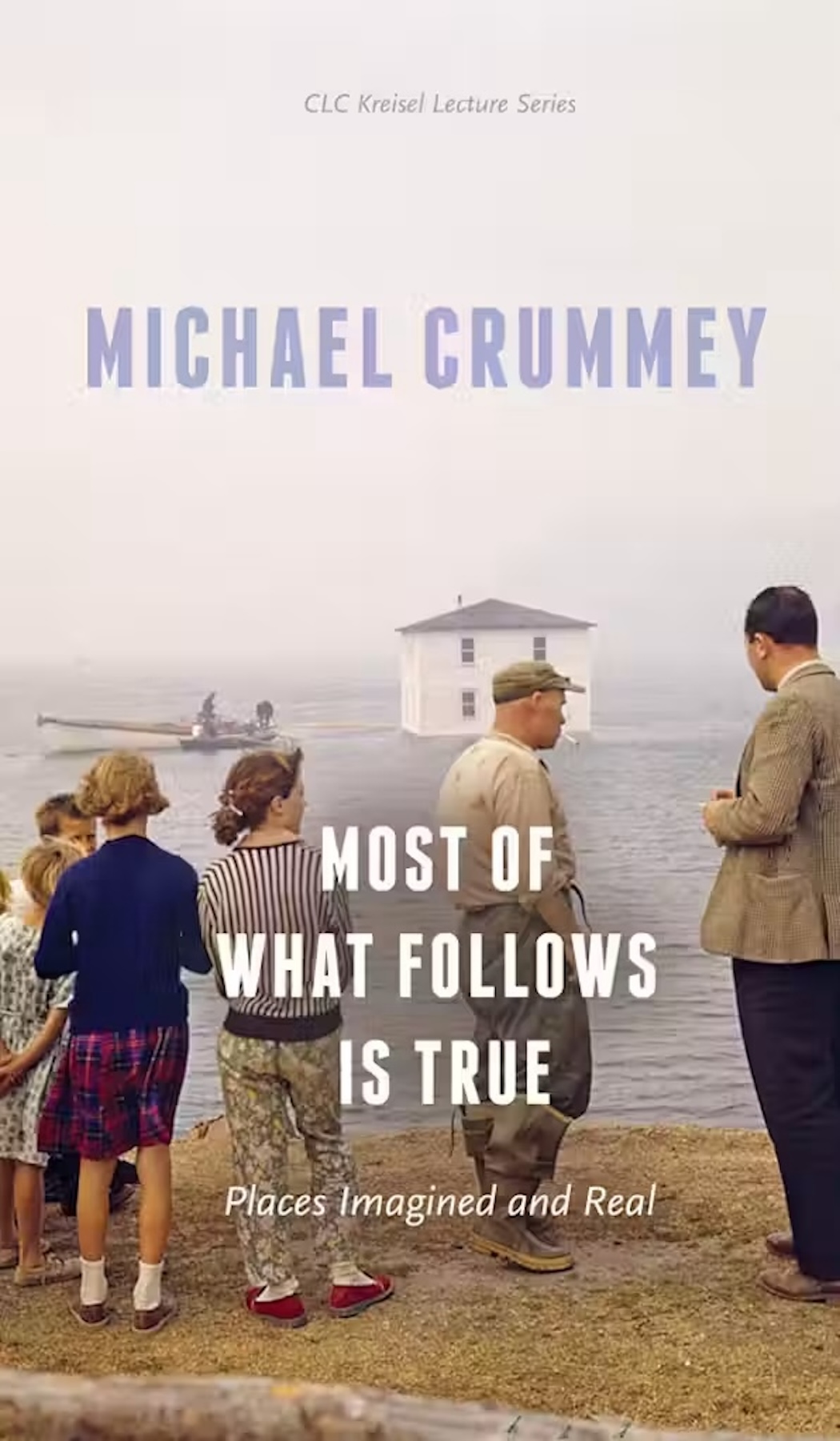
Most of What Follows is True: Places Imagined and Real
Author: Michael Crummey
Introduction: Margaret Mackey
Publishers: University of Alberta Press and the Canadian Literature Centre | Centre de littérature canadienne
Lecture Date: April 12, 2018 (the 12th Kreisel Lecture)
Publication Date: February 2019
About the Book:
"In all creative writing, the question of what is true and what is real are two very different considerations. Figuring out how to dance between them is a murky business." In Most of What Follows Is True, Michael Crummey examines the complex relationship between fact and fiction, between the “real world” and the stories we tell to explain it. Drawing on his own experience appropriating historical characters to fictional ends, he brings forward important questions about how writers use history and real-life figures to animate fictional stories. Is there a limit to the liberties a writer can take? Is there a point at which a fictionalized history becomes a false history? What responsibilities do writers have to their readers, and to the historical and cultural materials they exploit as sources? Crummey offers thoughtful, witty views on the deep and timely conversation around appropriation. (from UAP)
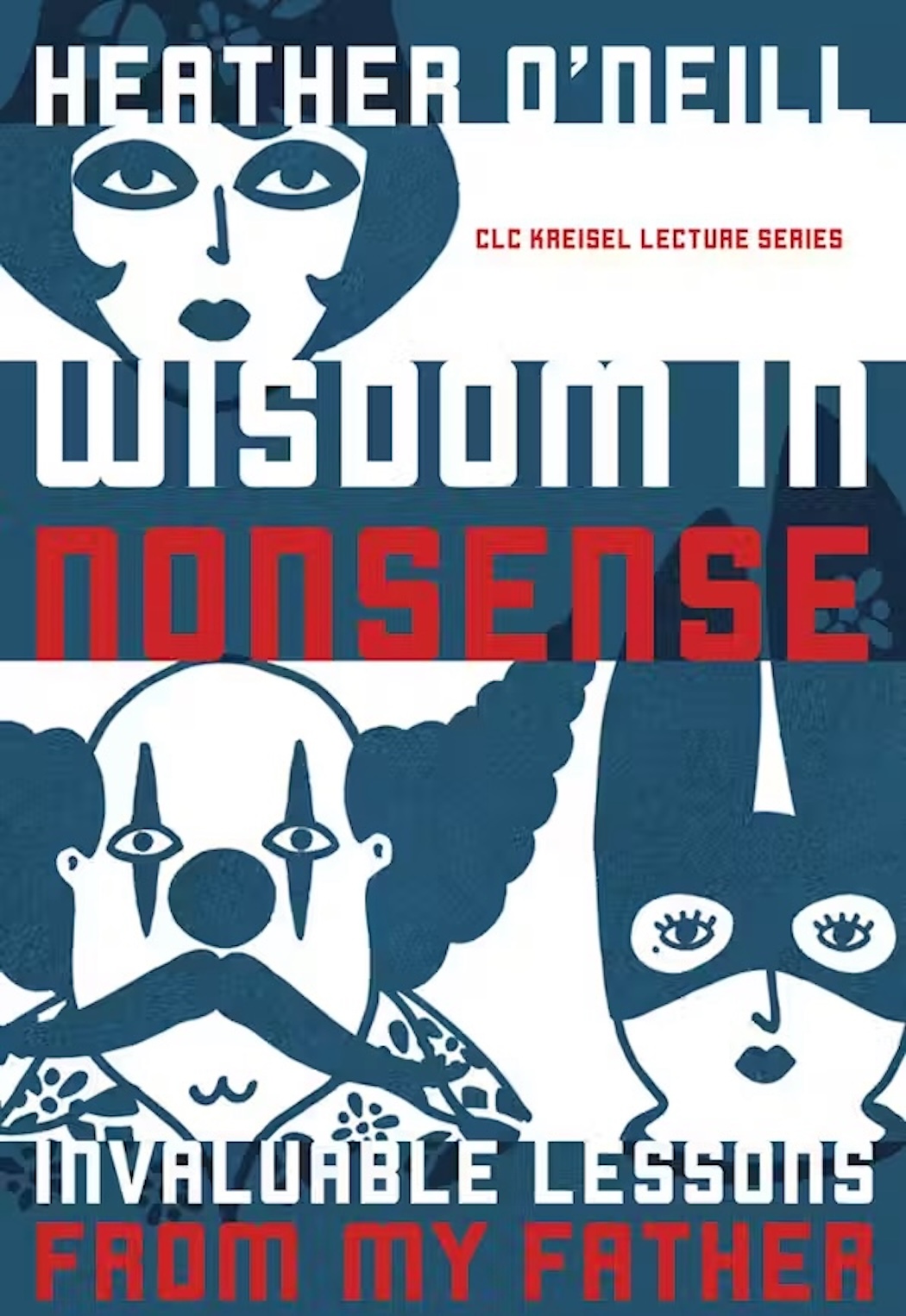
Wisdom in Nonsense: Invaluable Lessons from My Father
Author: Heather O'Neill
Introduction: Kit Dobson
Publishers: University of Alberta Press and the Canadian Literature Centre | Centre de littérature canadienne
Lecture Date: March 9, 2017 (the 11th Kreisel Lecture)
Publication Date: January 2018
About the Book:
"I broke all the rules that my dad gave me. It was he who had given me, in part, the confidence to think of my life as being worthy to mix with those of the geniuses."
With generosity and wry humour, novelist Heather O’Neill recalls several key lessons she learned in childhood from her father: memories and stories about how crime does pay, why one should never keep a diary, and that it is good to beware of clowns, among other things. Her father and his eccentric friends—ex-bank robbers and homeless men—taught her that everything she did was important, a belief that she has carried through her life. O’Neill’s intimate recollections make Wisdom in Nonsense the perfect companion to her widely praised debut novel, Lullabies for Little Criminals (HarperCollins). (from UAP)
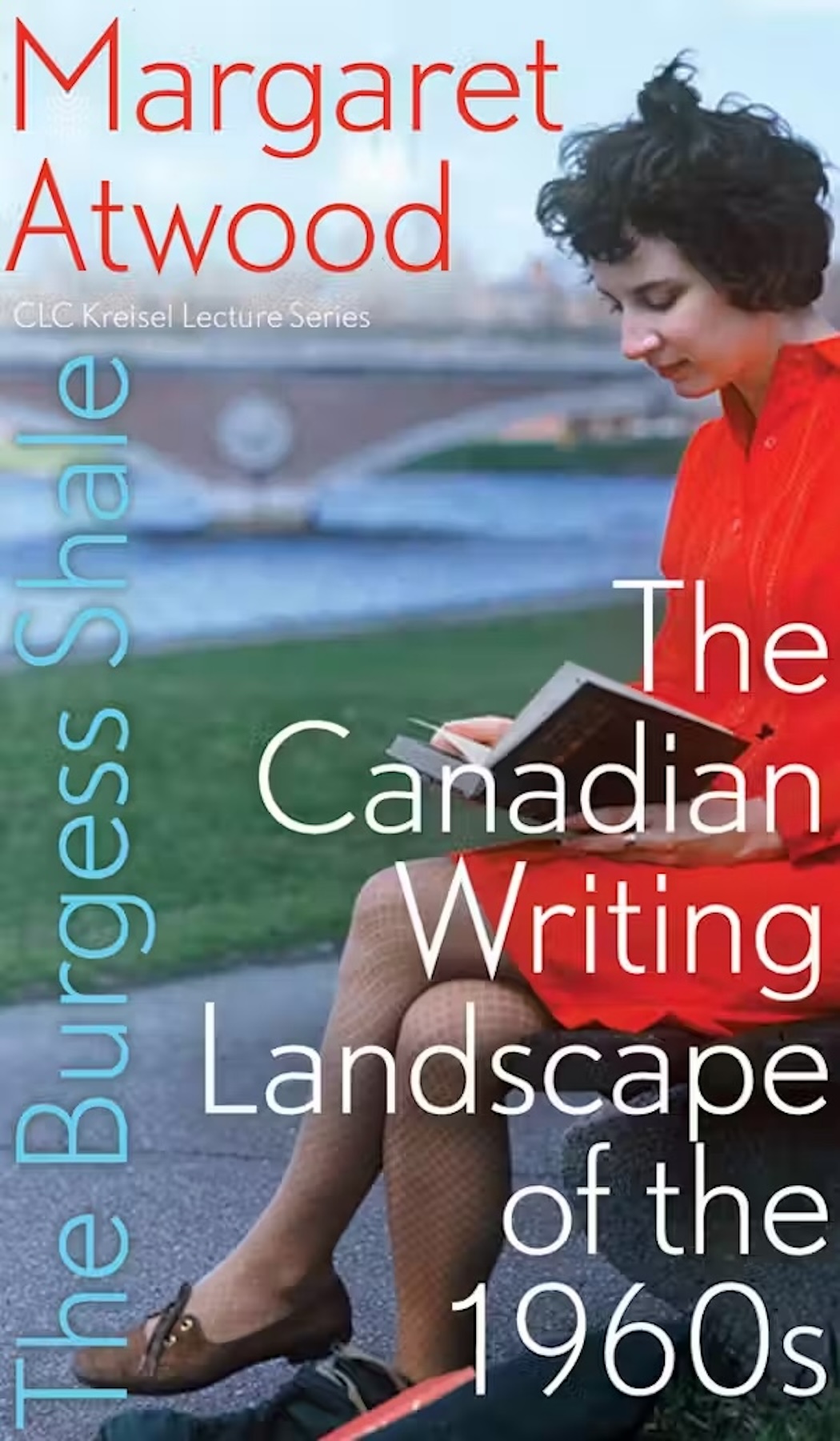
The Burgess Shale: The Canadian Writing Landscape of the 1960s
Author: Margaret Atwood
Introduction: Marie Carrière
Publishers: University of Alberta Press and the Canadian Literature Centre | Centre de littérature canadienne
Lecture Date: April 7, 2016 (the 10th Kreisel Lecture)
Publication Date: March 2017
About the Book:
“The outburst of cultural energy that took place in the 1960s was in part a product of the two decades that came before. It’s always difficult for young people to see their own time in perspective: when you’re in your teens, a decade earlier feels like ancient history and the present moment seems normal: what exists now is surely what has always existed.”
Margaret Atwood compares the Canadian literary landscape of the 1960s to the Burgess Shale, a geological formation that contains the fossils of many strange prehistoric life forms. The Burgess Shale is not entirely about writing itself, however: Atwood also provides some insight into the meagre writing infrastructure of that time, taking a lighthearted look at the early days of the institutions we take for granted today—from writers’ organizations, prizes, and grant programs to book tours and festivals. (from UAP)
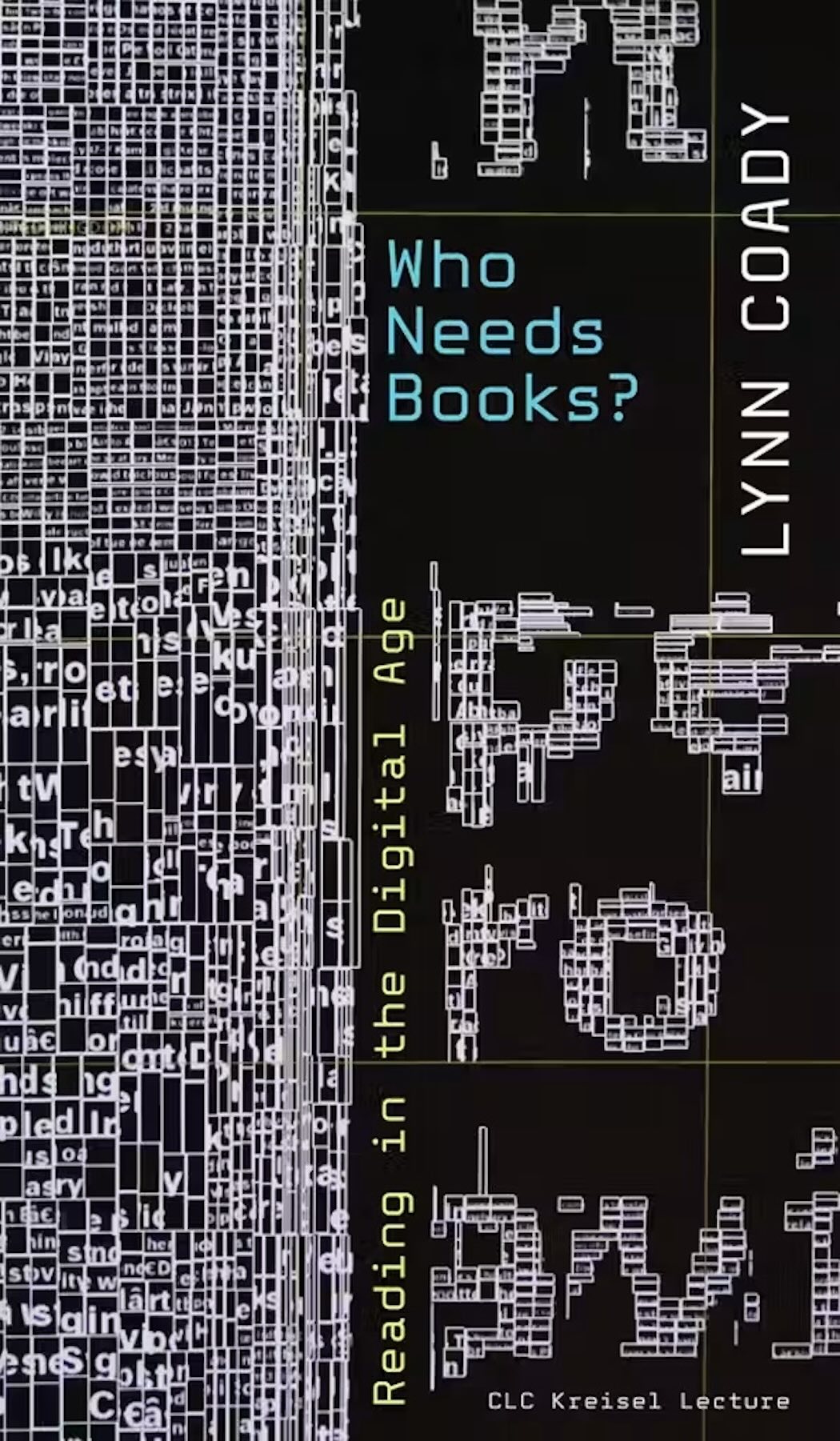
Who Needs Books? Reading in the Digital Age
Author: Lynn Coady
Introduction: Paul Kennedy
Publishers: University of Alberta Press and the Canadian Literature Centre | Centre de littérature canadienne
Lecture Date: April 13, 2015 (the 9th Kreisel Lecture)
Publication Date: March 2016
About the Book:
“We look around and feel as if book culture as we know it is crumbling to dust, but there’s one important thing to keep in mind: as we know it.”
What happens if we separate the idea of "the book" from the experience it has traditionally provided? Lynn Coady challenges booklovers addicted to the physical book to confront their darkest fears about the digital world and the future of reading. Is the all-pervasive internet turning readers into web-surfing automatons and books themselves into museum pieces? The bogeyman of technological change has haunted humans ever since Plato warned about the dangers of the written word, and every generation is convinced its youth will bring about the end of civilization. In Who Needs Books?, Coady suggests that, even though digital advances have long been associated with the erosion of literacy, recent technologies have not debased our culture as much as they have simply changed the way we read. (from UAP)
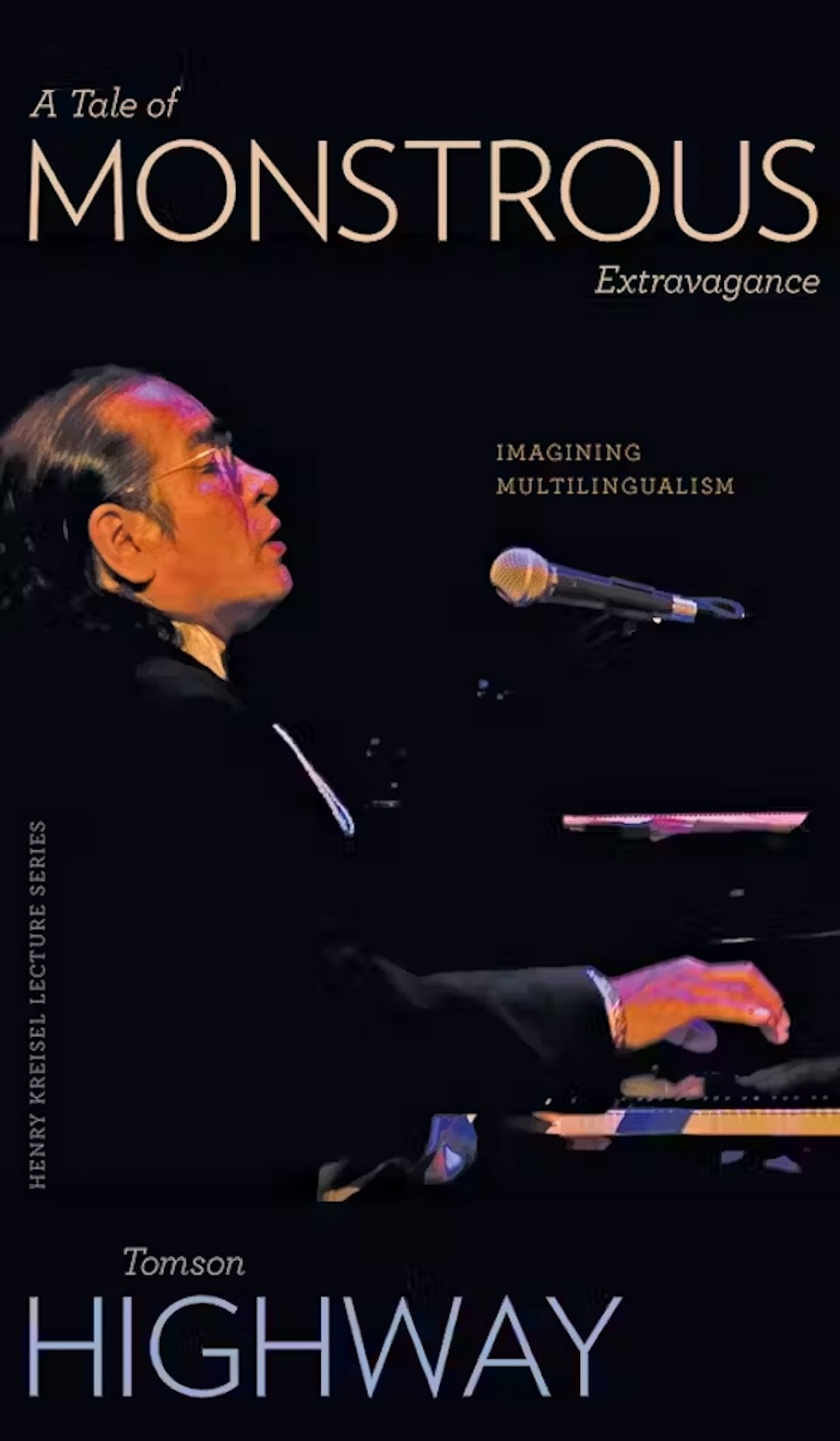
A Tale of Monstrous Extravagance: Imagining Multilingualism
Author: Tomson Highway
Introduction: Christine Sokaymoh Frederick
Publishers: University of Alberta Press and the Canadian Literature Centre | Centre de littérature canadienne
Lecture Date: March 6, 2014 (the 8th Kreisel Lecture)
Publication Date: February 2015
About the Book:
“Speaking one language, I submit, is like living in a house with one window only . . .”
From his legendary birth in a snow bank in northwestern Manitoba, through his metamorphosis to citizen-artist of the world, playwright, pianist, polyglot, storyteller, and irreverent disciple of the Trickster, Tomson Highway rides roughshod through the languages and communities that have shaped him. Cree, Dene, Latin, French, English, Spanish, and the universal language of music have opened windows and widened horizons in Highway’s life. Readers who can hang on tight—Highway fans, culture mavens, cunning linguists, and fellow tricksters—will experience the profundity of Highway’s humour, for as he says, “In Cree, you will laugh until you weep.” (from UAP)
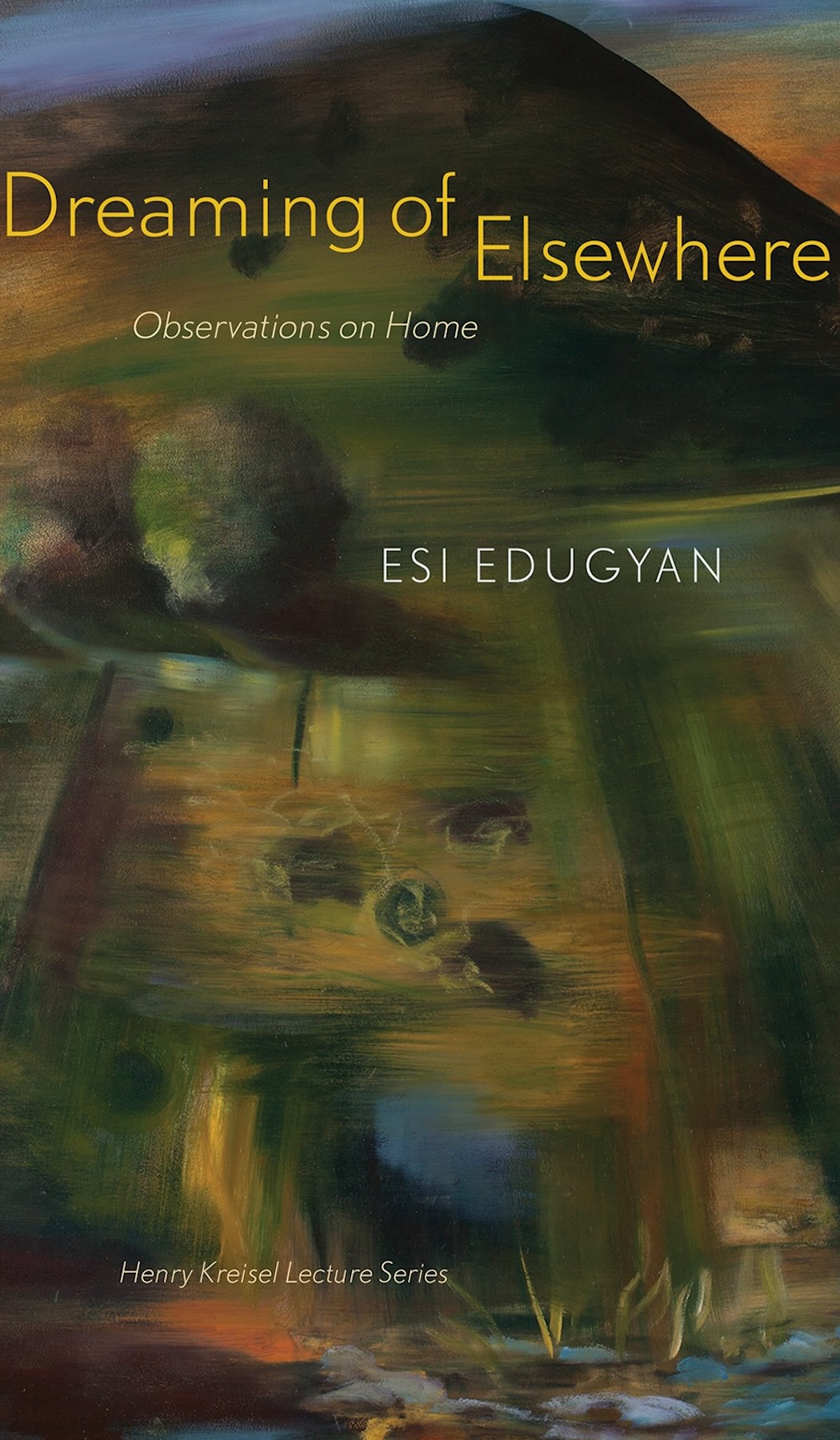
Dreaming of Elsewhere: Observations on Home
Author: Esi Edugyan
Introduction: Marina Endicott
Publishers: University of Alberta Press and the Canadian Literature Centre | Centre de littérature canadienne
Lecture Date: April 16, 2013 (the 7th Kreisel Lecture)
Publication Date: March 2014
About the Book:
"Home, for me, was not a birthright, but an invention. It seems to me when we speak of home we are speaking of several things, often at once, muddled together into an uneasy stew. We say home and mean origins, we say home and mean belonging. These are two different things: where we come from, and where we are. Writing about belonging is not a simple task."
Esi Edugyan chooses to intertwine fact and fiction, objective and subjective in an effort to find out if one can belong to more than one place, if home is just a place or if it can be an idea, a person, a memory, or a dream. How "home" changes, how it changes us, and how every farewell carries the promise of a return. Readers of Canadian literature, armchair travellers, and all citizens of the global village will enjoy her explorations and reflections, as we follow her from Ghana to Germany, from Toronto to Budapest, from Paris to New York. (from UAP)
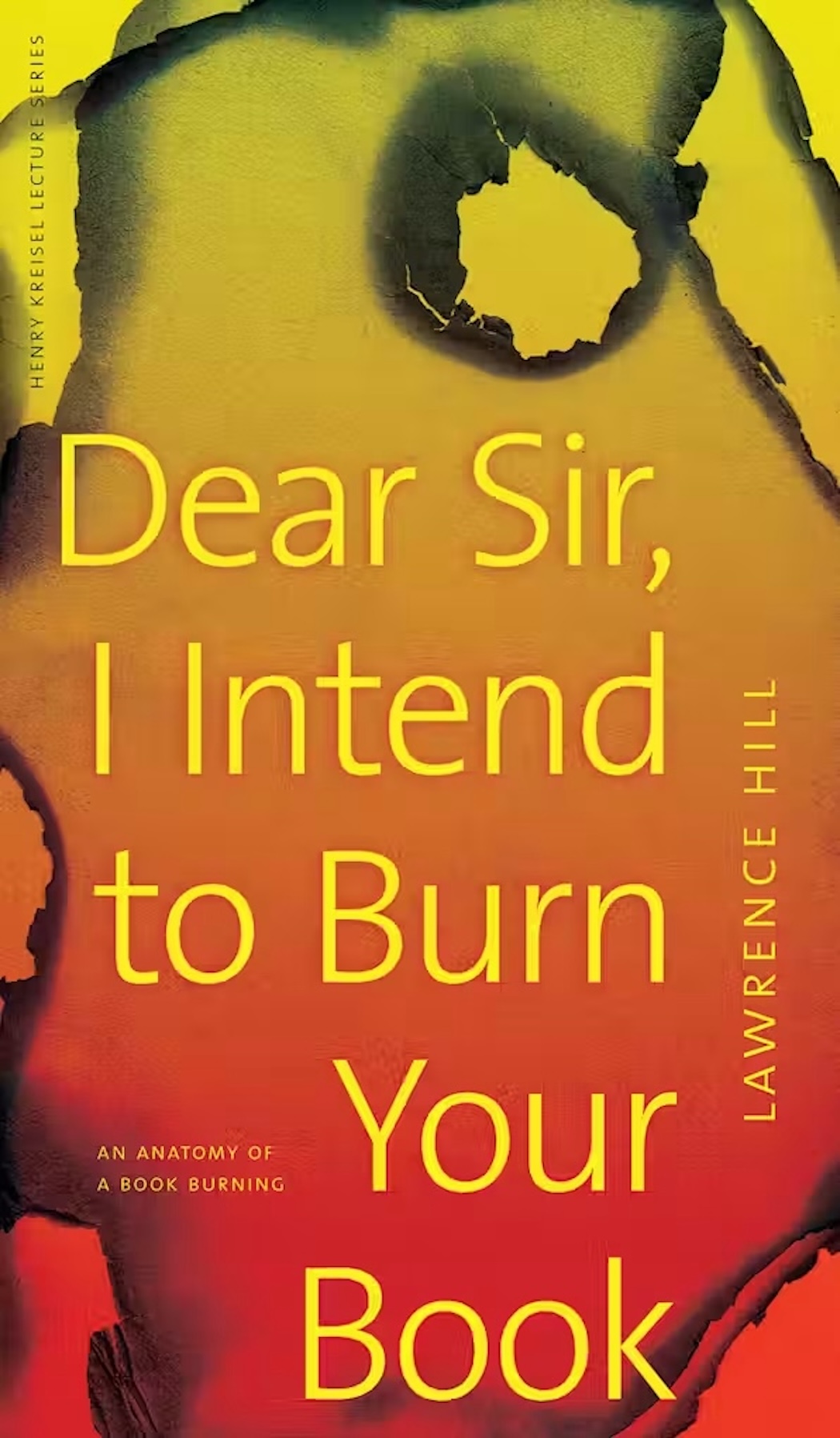
Dear Sir, I Intend to Burn Your Book: An Anatomy of a Book Burning
Author: Lawrence Hill
Introduction: Ted Bishop
Publishers: University of Alberta Press and the Canadian Literature Centre | Centre de littérature canadienne
Lecture Date: April 17, 2012 (the 6th Kreisel Lecture)
Publication Date: March 2013
About the Book:
Censorship and book burning are still present in our lives. Lawrence Hill shares his experiences of how ignorance and the fear of ideas led a group in the Netherlands to burn the cover of his widely successful novel, The Book of Negroes, in 2011. Why do books continue to ignite such strong reactions in people in the age of the Internet? Is banning, censoring, or controlling book distribution ever justified? Hill illustrates his ideas with anecdotes and lists names of Canadian writers who faced censorship challenges in the twenty-first century, inviting conversation between those on opposite sides of these contentious issues. All who are interested in literature, freedom of expression, and human rights will enjoy reading Hill's provocative essay. (from UAP)
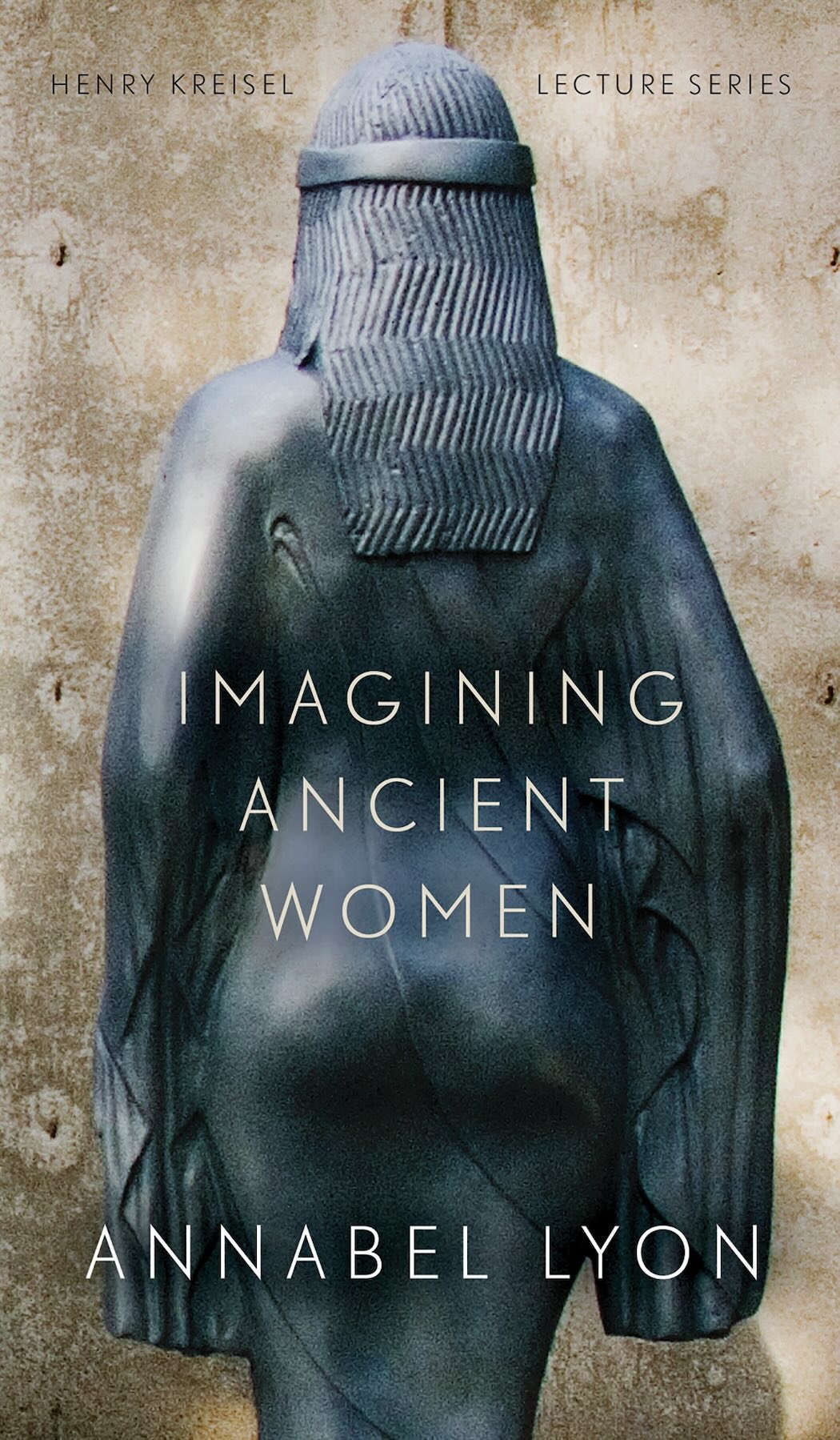
Imagining Ancient Women
Author: Annabel Lyon
Introduction: Curtis Gillespie
Publishers: University of Alberta Press and the Canadian Literature Centre | Centre de littérature canadienne
Lecture Date: March 14, 2011 (the 5th Kreisel Lecture)
Publication Date: March 2012
About the Book:
Annabel Lyon's passion for historical novels and her love of ancient Greece make her lecture on the process of creating characters of historical fiction captivating. She discusses the process of wading through historical sources-and avoiding myriad pitfalls-to craft believable people to whom readers can relate. Finding familiarity with figures from the past and then, with the help of hindsight, discovering their secrets, are the foremost tools of the historical novel writer. Readers interested in the literary creative process and in writing or reading historical fiction will find Lyon's comments insightful and intriguing. (from UAP)
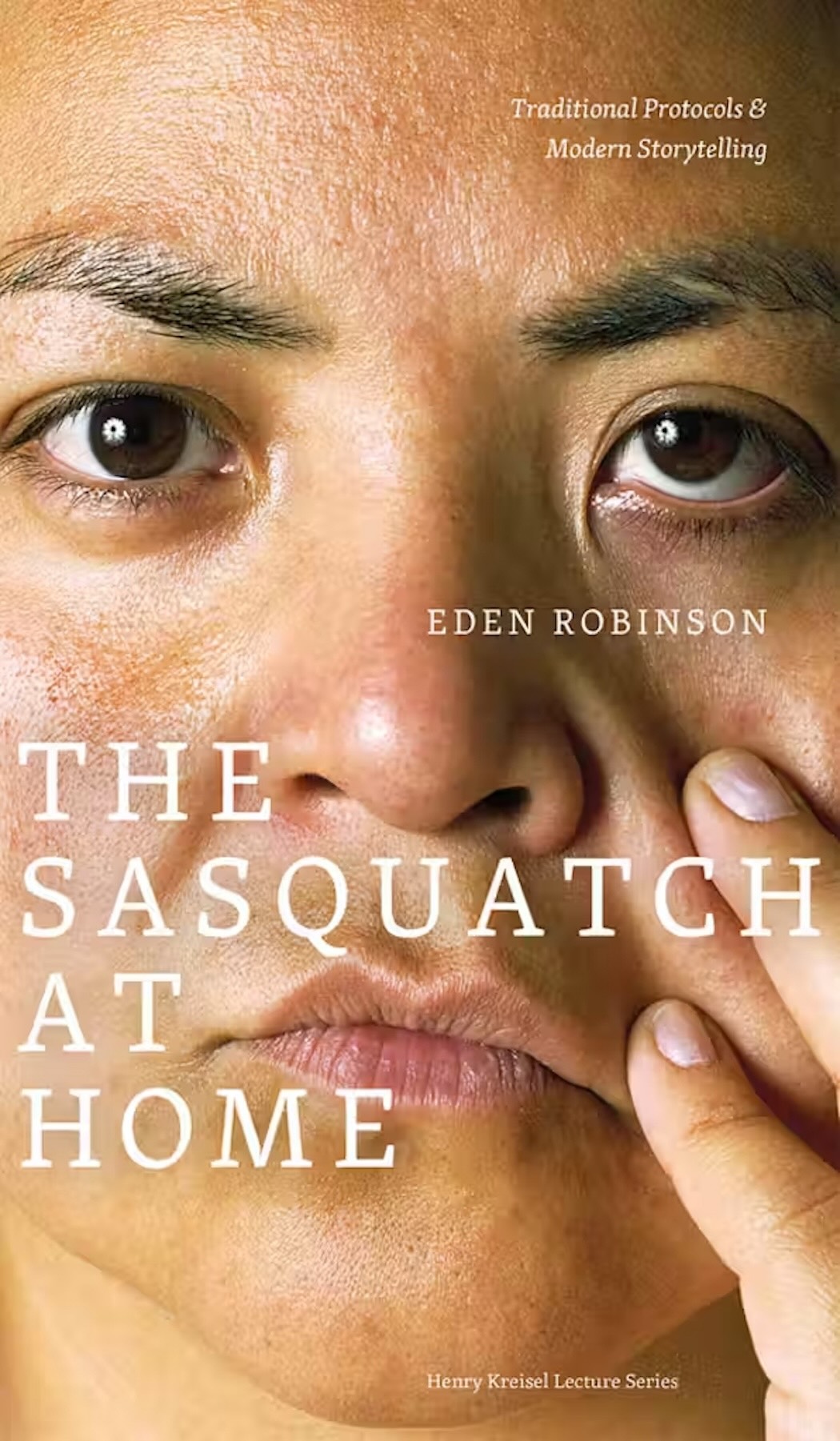
The Sasquatch at Home: Traditional Protocols & Modern Storytelling
Author: Eden Robinson
Introduction: Paula Simons
Publishers: University of Alberta Press and the Canadian Literature Centre | Centre de littérature canadienne
Lecture Date: March 2, 2010 (the 4th Kreisel Lecture)
Publication Date: May 2011
About the Book:
In The Sasquatch at Home, Robinson shares an intimate look into the intricacies of family, culture, and place. Robinson’s disarming honesty and wry irony shine through her depictions of the trip she and her mother took to Graceland, the potlatch where she and her sister received their Beaver Clan names, how her parents first met in Bella Bella (Waglisla, British Columbia), and a wilderness outing where she and her father try to get a look at b'gwus, the Sasquatch. Readers of memoir, Canadian literature, Indigenous history and culture, and fans of Robinson’s delightful, poignant, sometimes quirky tales will love The Sasquatch at Home. (from UAP)
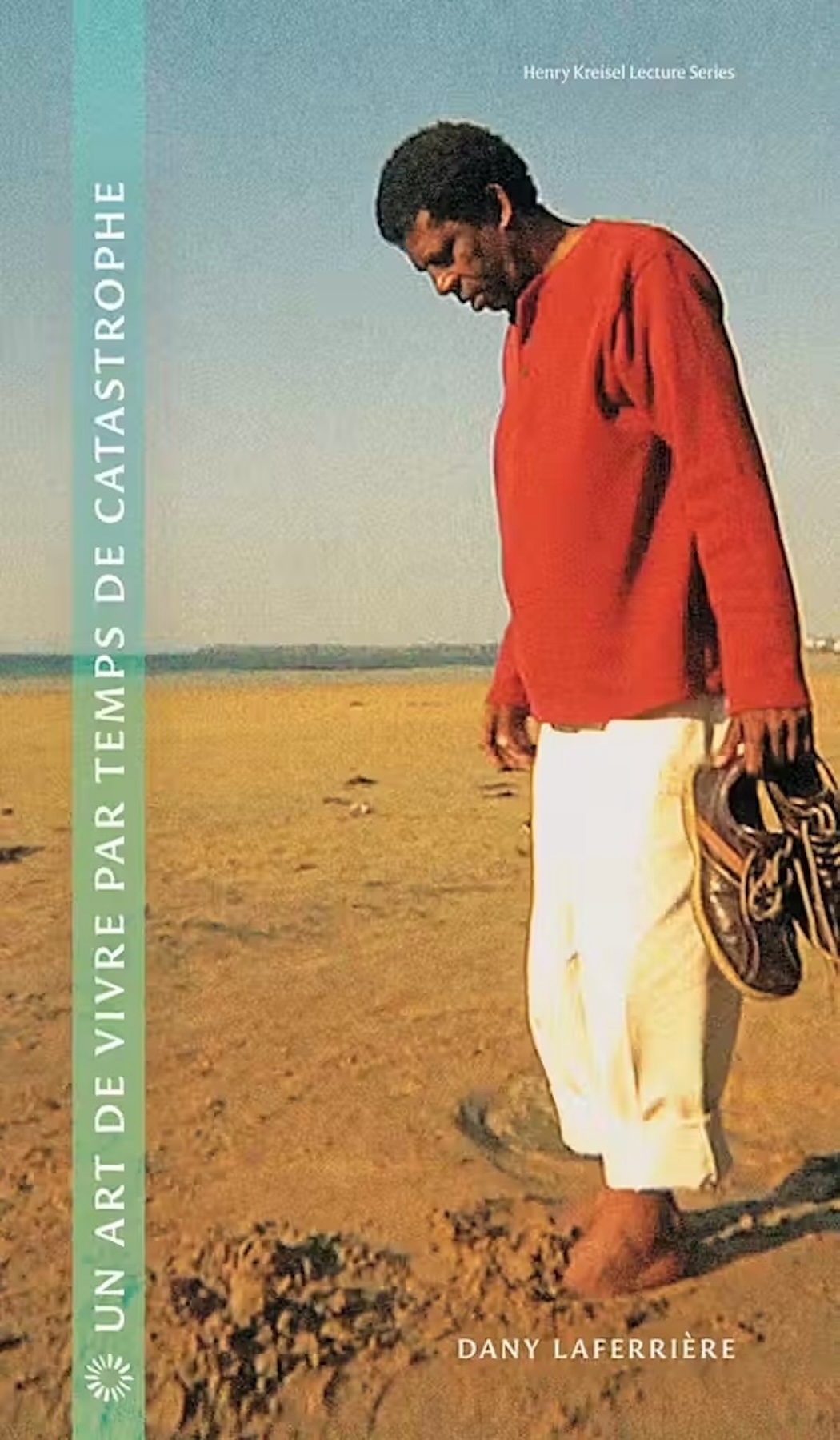
Un art de vivre par temps de catastrophe
Author: Dany Laferrière
Introduction: Marie Carrière
Publishers: University of Alberta Press and the Canadian Literature Centre | Centre de littérature canadienne
Lecture Date: March 5, 2009 (the 3rd Kreisel Lecture)
Publication Date: November 2010
About the Book:
En 2009, Dany Laferrière devint le troisième conférencier Henry Kreisel du Centre de littérature canadienne à captiver son auditoire à l'Université de l'Alberta. En évoquant ses souvenirs d'enfance, son arrivée à Montréal et son travail d'écrivain, il a expliqué comment il écrit comme il vit. Parsemée d'humour et de perspicacité, la conférence s'est voulue un appel à la reconnaissance de la littérature et de l'humanité au-delà de toutes frontières. (from UAP)
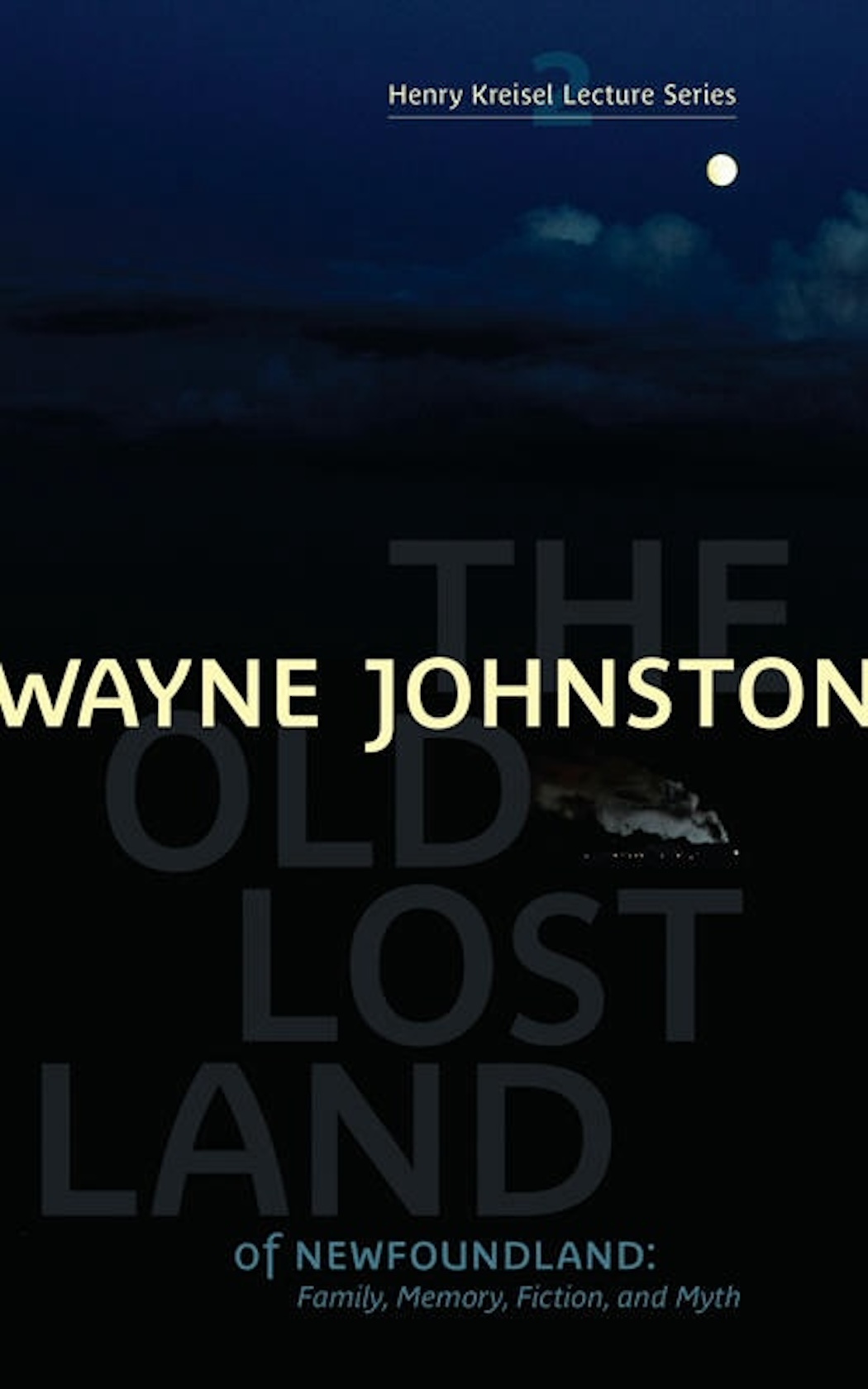
The Old Lost Land of Newfoundland: Family, Memory, Fiction, and Myth
Author: Wayne Johnston
Publishers: NeWest Press and the Canadian Literature Centre | Centre de littérature canadienne
Lecture Date: March 5, 2008 (the 2nd Kreisel Lecture)
Publication Date: April 2009
About the Book:
Wayne Johnston became, in 2008, the second prominent Canadian writer to enlighten and entertain audiences as a speaker for the Canadian Literature Centre’s Henry Kreisel Lecture Series. Author of seven books, including the bestselling novels The Colony of Unrequited Dreams and The Navigator of New York, he spoke to an enthusiastic audience at the University of Alberta about the myths and realities of his native Newfoundland. A master storyteller, Johnston peppered the lecture with impromptu asides, delighting his listeners with true tales and well-spun yarns. (from NeWest Press)
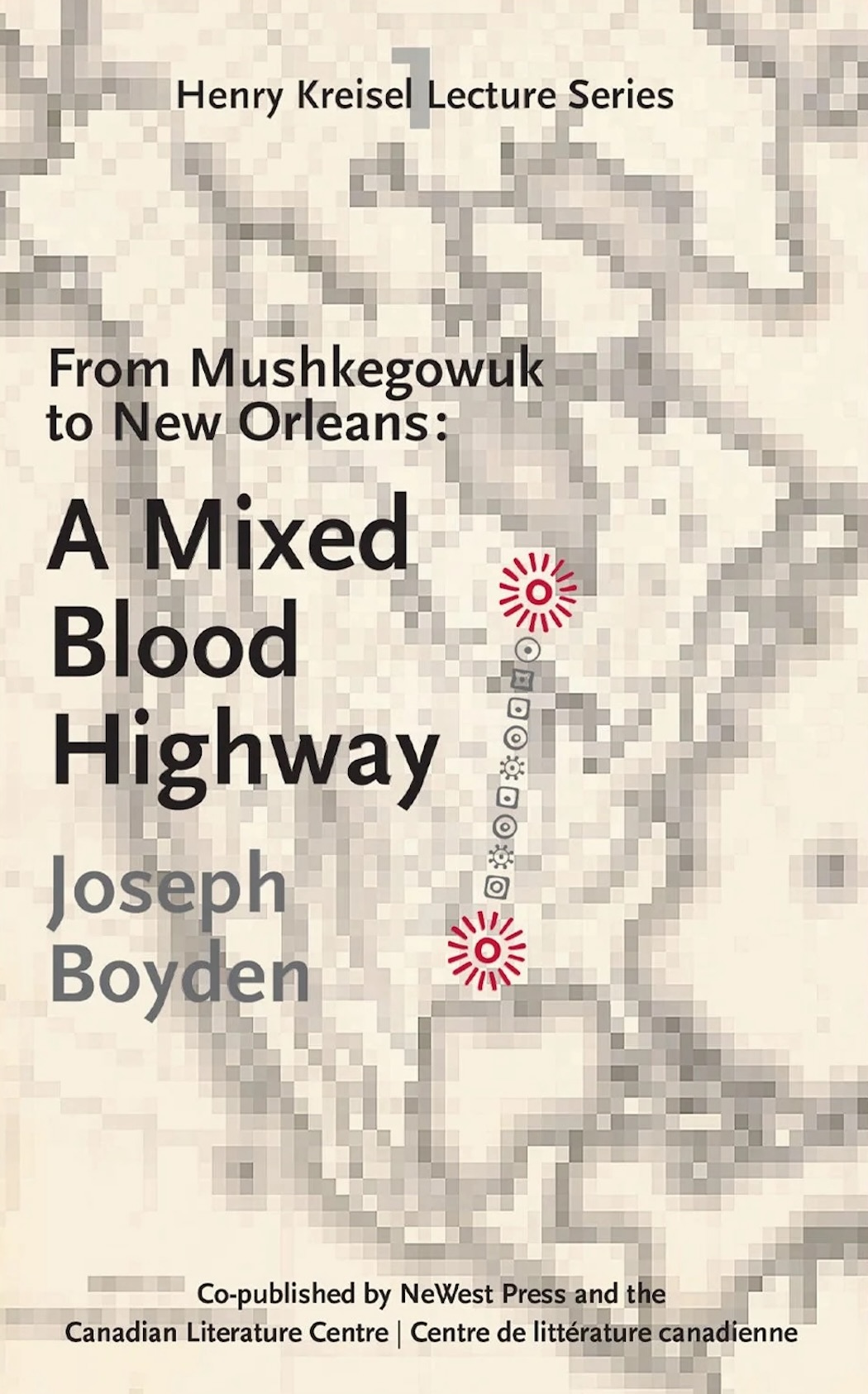
From Mushkegowuk to New Orleans: A Mixed Blood Highway
Author: Joseph Boyden
Publishers: NeWest Press and the Canadian Literature Centre | Centre de littérature canadienne
Lecture Date: March 21, 2007 (the 1st Kreisel Lecture)
Publication Date: April 2008
About the Book:
In 2007, Joseph Boyden, author of the bestselling novel Three Day Road and 2008 Giller Prize winner for Through Black Spruce, was invited by the Canadian Literature Centre | Centre de littérature canadienne to deliver the inaugural Henry Kreisel Lecture at the University of Alberta. Boyden spoke passionately, relating Aboriginal people in Canada to poor African Americans, Whites, and Hispanics in post-Katrina New Orleans. At the end of his lecture he presented a manifesto to the audience, demanding independence from the shackles of North American governments on behalf of these oppressed cultures. (from NeWest Press)